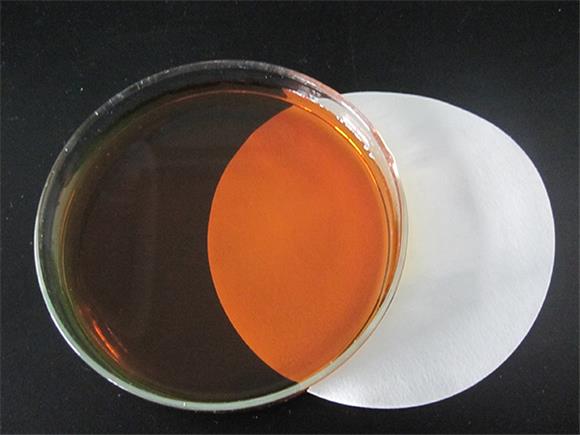
News
دسامبر . 25, 2024 17:25 Back to list
Essential Micronutrients for Optimal Coffee Plant Growth and Quality Production
High Quality Micronutrients for Coffee Plants Enhancing Growth and Yield
Coffee is one of the most popular beverages worldwide, with millions of people relying on it for their daily caffeine fix. However, behind the rich aroma and taste lies a complex ecosystem of agricultural practices that significantly impact coffee quality and yield. One critical aspect of coffee cultivation is the application of micronutrients, which play an essential role in plant health and productivity. This article explores the importance of high-quality micronutrients for coffee plants and how they can enhance growth and yield.
Micronutrients, although required in small quantities, are vital for various physiological and biochemical processes in plants. The main micronutrients essential for coffee plants include iron, manganese, zinc, copper, boron, molybdenum, and chlorine. Each of these elements serves unique functions that contribute to the overall health of the coffee plant.
Iron is crucial for chlorophyll synthesis, which is necessary for photosynthesis. A deficiency in iron can result in chlorosis, a condition characterized by yellowing of leaves, leading to reduced photosynthetic capacity and, ultimately, lower yields. By ensuring that coffee plants receive adequate iron, growers can improve leaf health and boost photoassimilate production.
Manganese plays a key role in enzyme activation and photosynthesis, particularly in the water-splitting reaction during light-dependent processes. Manganese deficiency often manifests as interveinal chlorosis and leaf necrosis, which can hinder growth and development. Soil amendments or foliar sprays containing manganese can effectively mitigate these issues, promoting robust growth.
Zinc is another micronutrient that significantly influences coffee quality. It is vital for hormone production and enzyme function, affecting growth and development processes such as flowering, fruiting, and seed formation. Zinc deficiency can lead to stunted growth and poor fruit quality. Regular soil testing and appropriate application of zinc fertilizers can enhance the quality and yield of coffee crops.
high quality micronutrients for coffee plants

Copper plays a crucial role in photosynthesis, respiration, and lignin synthesis. While required in smaller amounts, its deficiency can lead to poor root development and decreased resistance to diseases. Ensuring a balanced supply of copper through soil amendments can help coffee plants develop a strong root system and withstand environmental stress.
Boron is critical for cell wall formation, pollen germination, and fruit development in coffee plants. A boron deficiency can lead to poor fruit set and development, reducing the overall productivity of the coffee plant. Implementing boron applications during critical growth stages can improve yield and fruit quality.
Molybdenum is essential for nitrogen fixation and the synthesis of enzymes critical to plant metabolism. While its requirements are minimal, its impact is significant. A deficiency can impair nitrogen utilization, affecting overall plant health. Regular monitoring and application of molybdenum when needed can optimize coffee plant growth.
Chlorine contributes to osmotic regulation and photosynthesis. Although often overlooked, a balanced supply of chlorine can enhance the plant's resilience to drought and salinity, thus improving overall plant health.
In conclusion, the careful management of high-quality micronutrients is vital for the optimal growth and yield of coffee plants. By understanding the specific nutrient requirements of coffee crops and addressing potential deficiencies, producers can significantly enhance both the quality and quantity of coffee produced. Regular soil testing, targeted fertilization, and foliar applications are crucial strategies that can lead to healthier coffee plants and ultimately a more sustainable coffee industry. As the demand for high-quality coffee continues to rise, the role of micronutrients in coffee cultivation will only become more critical in the years to come. Investing in proper nutrient management is no longer an option but a necessity for coffee growers aiming for success in a competitive market.
-
OEM Chelating Agent Preservative Supplier & Manufacturer High-Quality Customized Solutions
NewsJul.08,2025
-
OEM Potassium Chelating Agent Manufacturer - Custom Potassium Oxalate & Citrate Solutions
NewsJul.08,2025
-
OEM Pentasodium DTPA Chelating Agent Supplier & Manufacturer High Purity & Cost-Effective Solutions
NewsJul.08,2025
-
High-Efficiency Chelated Trace Elements Fertilizer Bulk Supplier & Manufacturer Quotes
NewsJul.07,2025
-
High Quality K Formation for a Chelating Agent – Reliable Manufacturer & Supplier
NewsJul.07,2025
-
Best Chelated Iron Supplement for Plants Reliable Chelated Iron Fertilizer Supplier & Price
NewsJul.06,2025
